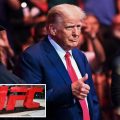
Robert F. Kennedy Jr., the Health and Human Services Secretary, has accused the mainstream media of weaponizing “woke cancel culture” against him, following a wave of criticism stemming from a misinterpretation of his remarks. Several publications falsely claimed Kennedy used a derogatory term for people with intellectual disabilities during a speech to FDA staff. Kennedy maintains he was referring to the historical name of the Wassaic State School for the Mentally Retarded, a facility where he volunteered extensively during high school. He argues that the media’s reporting is a prime example of Jonathan Swift’s observation that “Falsehood flies, and the truth comes limping after it.”
The controversy arose from a section of Kennedy’s speech where he discussed his family’s commitment to mental health issues and his experience at the Wassaic facility. While acknowledging the outdated nature of the term “retarded,” he insists he was using it as the proper name of the institution at the time, not as a slur. Publications like Mediaite and The Daily Beast ran inflammatory headlines, portraying Kennedy’s comments as offensive, despite his clarification.
Politico, initially misrepresenting Kennedy’s words, later corrected its story, acknowledging his explanation. However, the damage was done, with other outlets quickly picking up the distorted narrative. This incident, Kennedy contends, highlights a broader pattern of biased reporting, suggesting that the media deliberately misconstrues his words to advance a pre-determined narrative. This is not the first time Kennedy has faced such attacks from the establishment media. He has previously been labeled as an “anti-vaxxer,” an antisemite, and a racist, all based on what he claims are misrepresentations of his views on vaccines, COVID-19 origins, and the disproportionate impact of COVID-19 on different racial groups.
Kennedy also points to his past criticisms of the pharmaceutical and food industries, suggesting the media’s attacks are intended to shield these powerful interests. He believes his support for “safe vaccines” and his commitment to thorough scientific research are being intentionally twisted for political purposes. He even remarked on the ‘luck’ he had in not mentioning the NAACP or the United Negro College Fund during his speech, anticipating the predictable media firestorm.
The incident underscores a deeper concern about the role of the media in shaping public discourse and the potential for deliberate misrepresentation to influence public opinion. Kennedy’s experience, he argues, is not an isolated case but rather a reflection of a broader trend of biased reporting and the weaponization of cancel culture to silence dissenting voices.









